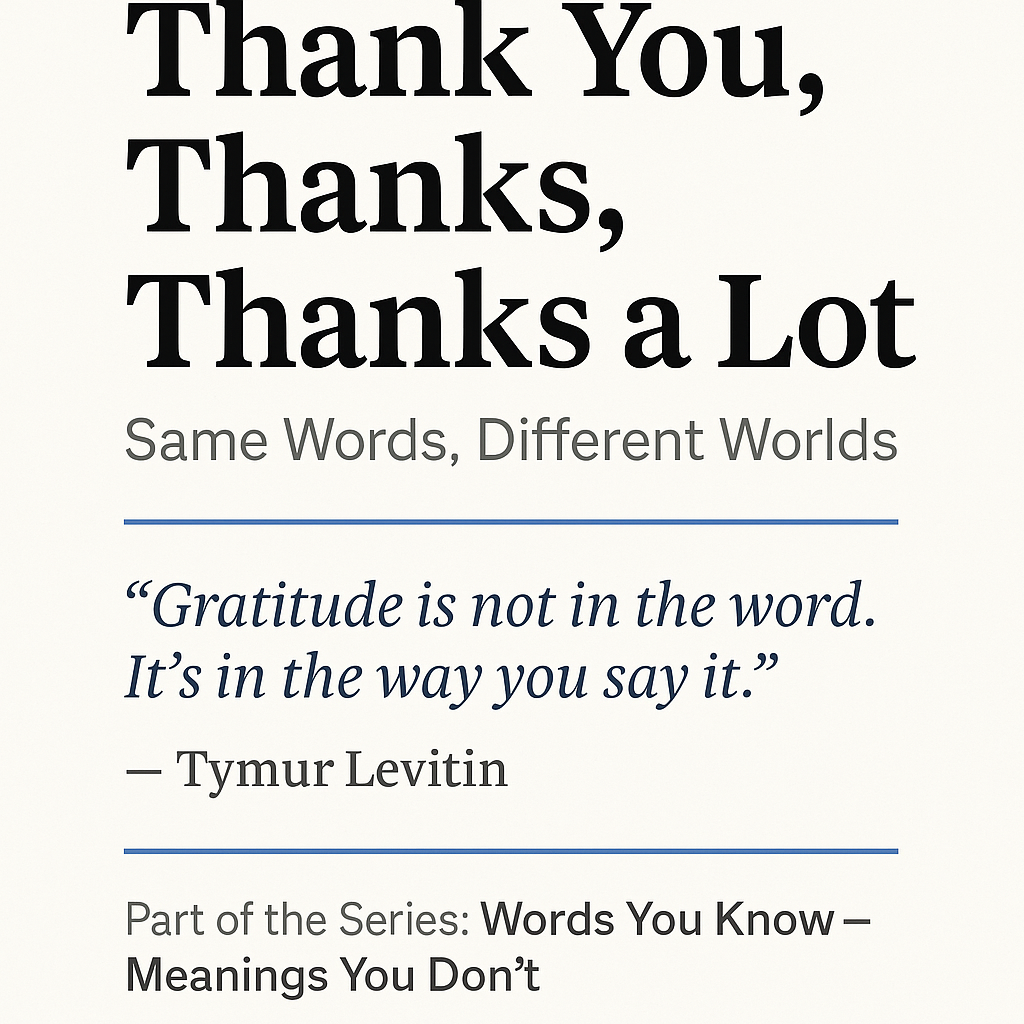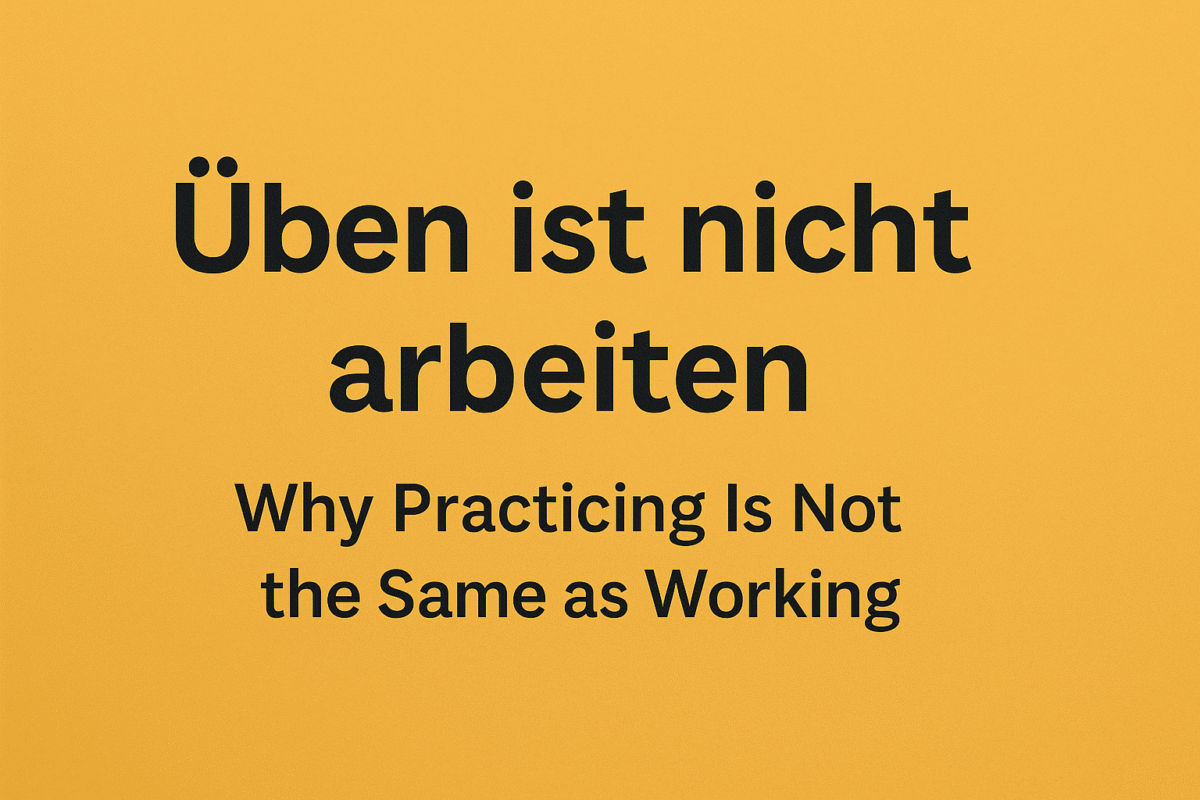Why Practicing Is Not the Same as Working
Many students — especially adult learners — treat language practice like a job.
They sit down, open a notebook, and start “working” on German.
But here’s the truth:
Üben ist nicht arbeiten.
Practicing is not working.
And when you treat practice like labor — it stops working altogether.
Practice is play, not production
In German, there’s a clear difference between:
- arbeiten — to work
- üben — to practice
Arbeiten implies duty, result, fatigue.
Üben implies repetition, ease, progress.
You’re not digging a ditch — you’re tuning an instrument.
Why this matters for language learners
If you treat your language sessions like factory work, three things happen:
- You expect results too quickly.
(“I worked hard. Why didn’t I learn this yet?”) - You start measuring effort instead of understanding.
(“I spent an hour on this — I deserve to speak better!”) - You burn out.
(“German is just too hard.”)
But language learning is not about how much you sweat.
It’s about how much you notice.
And noticing comes from a curious, relaxed, repeated exposure — not force.
In other languages: Why “practice” is misunderstood
Let’s compare a few terms:
| Мова | Word for “practice” | Common confusion |
|---|---|---|
| Англійська | to practice | Often confused with repetition only |
| Німецька | üben | Clear mental focus — not labor |
| Російська | практиковать / упражняться | Tends to sound like training, often physical |
| Українська | практикувати / вправлятись | Similar — linked to drills or rehearsal |
| Іспанська | practicar | Often overlaps with real action (e.g. practicar medicina) |
In English or Slavic languages, “practice” often sounds like repetition, or even actual use (like medical or legal “practice”).
In German, üben still means a preparatory phase — not the final performance.
Це safe space to try, repeat, and grow.
From music to language: same principle
Ask any musician.
You don’t “work” your way to playing Mozart.
You practice your way — slowly, imperfectly, intentionally.
You stop, repeat a bar, listen, adjust.
And that’s exactly how language should feel.
You play with the structure,
test the tone,
listen to the feedback -
without worrying if it’s “done.”
Our approach at Levitin Language School
At our school, we don’t assign “homework.”
We design practice spaces.
Each session is:
- Exploratory — we ask, “Why does it work like this?”
- Repetitive — but never boring
- Focused — but never pressured
Because we don’t just teach German.
We teach students to love the act of practicing -
not just the result.
Practice is a mindset — not a task
When students say, “I need to work on my German,”
we invite them to say instead:
“I want to practice German.”
It changes everything.
Because work ends when the result is achieved.
But practice continues — because learning never ends.
📘 Author’s Column — The Language I Live
Language. Identity. Choice. Meaning.
✍️ Tymur Levitin — founder, teacher, translator
🔗 https://languagelearnings.com
🟡 Виберіть свою мову
🔗 Пов'язане читання:
→ Real Language Is Never Literal
→ Lebensarbeit, Lebenstätigkeit, oder Lebensjob?
→ Stille vs Stil
© Тимур Левітін






















